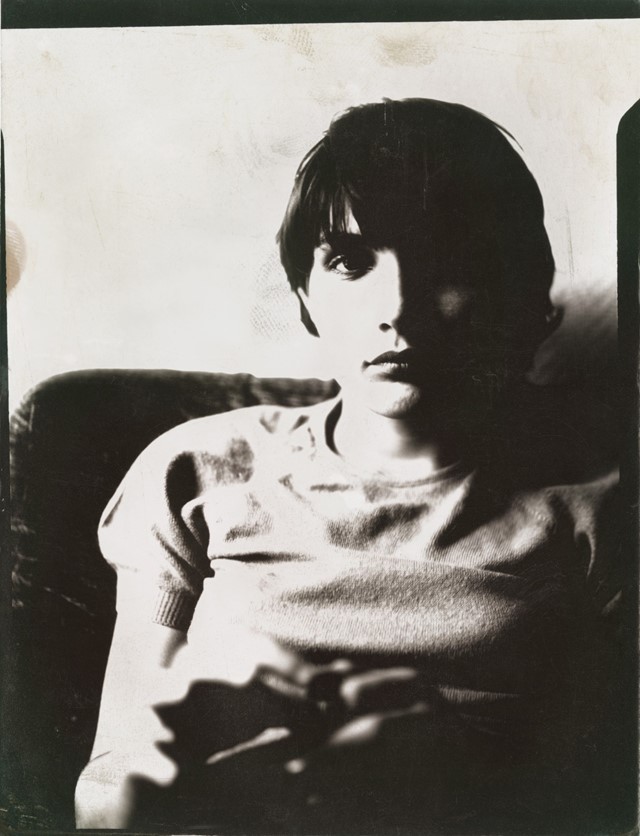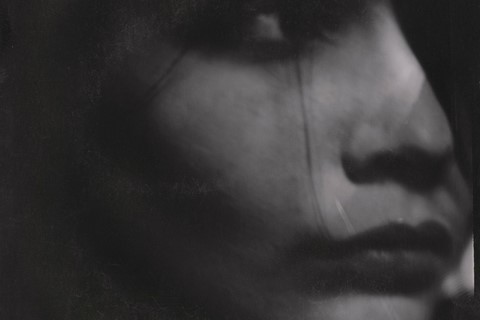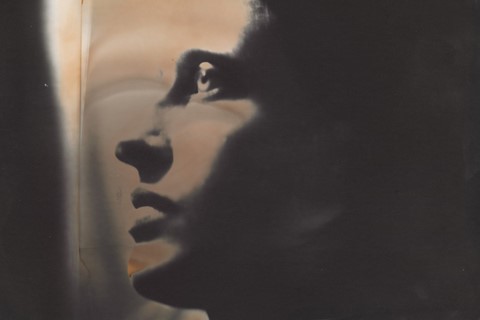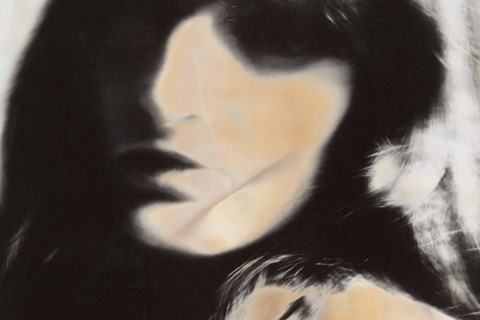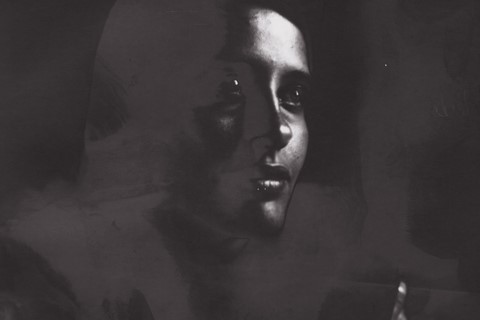Photographer Jonathan Hallam was one of the few photographers ever allowed to take pictures inside Maison Martin Margiela
“I first went to Martin Margiela’s studio when I was working as a hairdresser, assisting Eugene Souleiman. It was in the lead up to the A/W98 show; the one with the puppets styled by Jane How,” explains British artist Jonathan Hallam. Hallam is one of the select few photographers ever allowed to take pictures inside of Maison Martin Margiela, and backstage at the elusive Belgian designer’s shows. “It was only me, Mark Borthwick, Anders Edström, Marina Faust, Ronald Stoops, and a few others in between,” notes Hallam of the few people that Margiela trusted to document behind-the-scenes at the studio.
But how did the unknown Hallam go from hairdresser’s assistant to being a key part of Margiela’s inner sanctum? The story begins with a disposable camera and a vintage coat. “When I was first at the studio, I was wearing a 1960s New York-issue police jacket,” says the photographer. “Martin asked me loads of questions about it. And I knew all the details – when it was issued and made, for example. He was stood there with his mouth open. I started to take some pictures with a disposable camera and he said, ‘you know you’re not allowed to do that?’ But then he was so intrigued he invited me into his office to show me the images once they were printed...”
After that meeting in late 1997, Margiela and Hallam would go on to collaborate up until the designer’s departure from the house in 2009. Some of the work Hallam produced in that period is now the subject of a new exhibition opening today in Paris. Titled La Femme de Cabine, the show is comprised of Surrealist-influenced portraits that Hallam took of Martin Margiela’s staff between 1997 and 2004, and is staged at Halebopp (a creative studio and project space). “When I met Jonathan I had no idea who he was,” says John Saint Michel, Halebopp’s resident curator, who fell in love with Hallam’s work as soon as he encountered it entirely by chance. “Jonathan was staying at my place near the Pompidou Centre via a friend. He showed me his archive and I just couldn’t believe what I was seeing. I’d never seen such an extensive photographic collection – especially one from a house like Maison Margiela.”
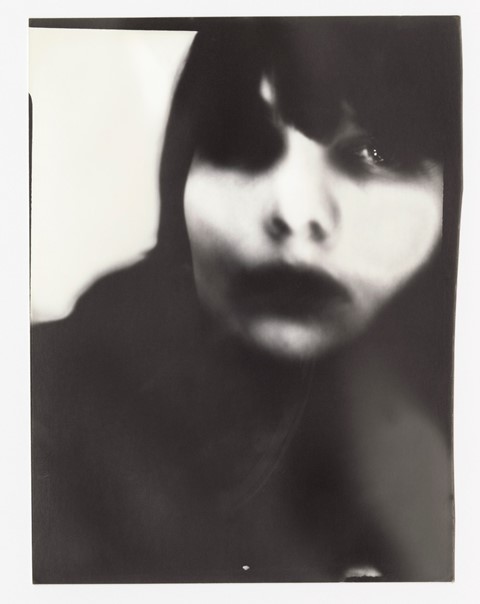
The photographs on display as part of La Femme de Cabine began with another serendipitous meeting of sorts when Hallam came across a set of AGFA-licenced chemicals at a flea market in Belgium. The expiry read ‘1964’. Hallam had always wanted to take pictures directly onto photographic paper, rather than using the traditional method of shooting on film negatives, so that the images were unable to be replicated and would manifest more like a painting – a one of a kind work of art. He realised that if he were to recreate these out-of-date chemicals, he would be able to do just that. “I recomposed them in my apartment in Tupperware boxes in my bathroom,” says Hallam. “I blacked out my bathroom and made it into a dark room and with just a red light and developed the images in there. The photographs themselves have a 25-minute exposure time and were photographed out of focus. I was just experimenting with photography and it was more serendipitous than anything that my images were kind of playing with the blurring of faces and anonymity – because I didn’t really know the work of Martin at that point.”
In 2004, Margiela requested that Hallam make another series of staff portraits with the same technique for his issue of A Magazine Curated By. For the exhibition these images, alongside the ones taken in 1997, have been scanned and blown up from their original four by five inch scale. The choice to exhibit these images in 2019 was a conscious decision on the part of curator Saint Michel. “We wanted to create a show that honoured the culture of the house,” he says. “With the long exposure time, it challenges instantaneity and the fashion industry today. The nature of what we’re trying to say here is that when I look at the state of affairs now it’s almost identical to the climate in fashion was when Martin was working. He was trying to slow it down when it was moving at such a corporate pace. That message is relevant now more than ever.”
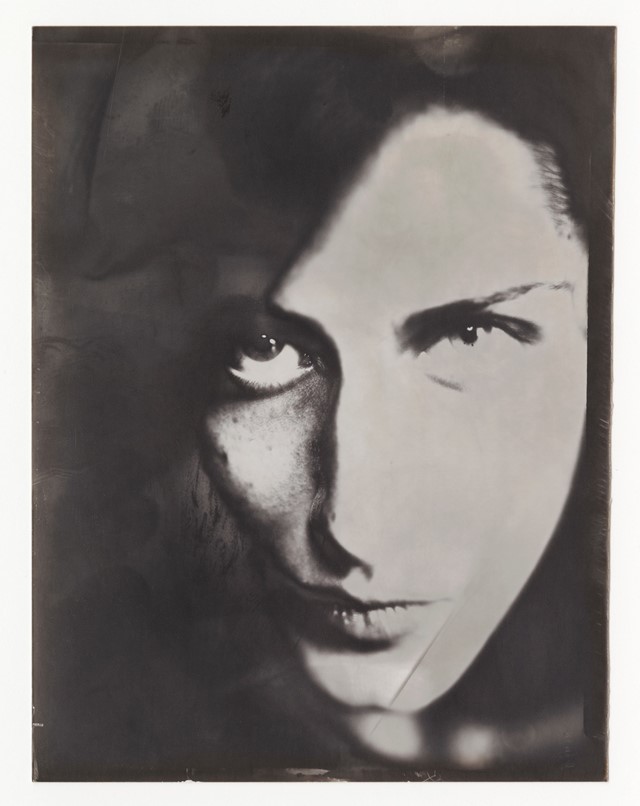
Hallam and Saint Michel are aiming to continue working together to ensure that this unique body of work is seen. As for Margiela’s role in the exhibition, did he wish to be involved or did he remain quietly watchful as ever? “Martin is someone who is very open to collaboration,” says Hallam. “He's very aloof, but he’s also open and excited to projects like this. And in this case, he was very happy for us to just get on with it.”
La Femme de Cabine: Martin Margiela 1997–2004 is open until June 25, 2019 at Halebopp, Paris.
